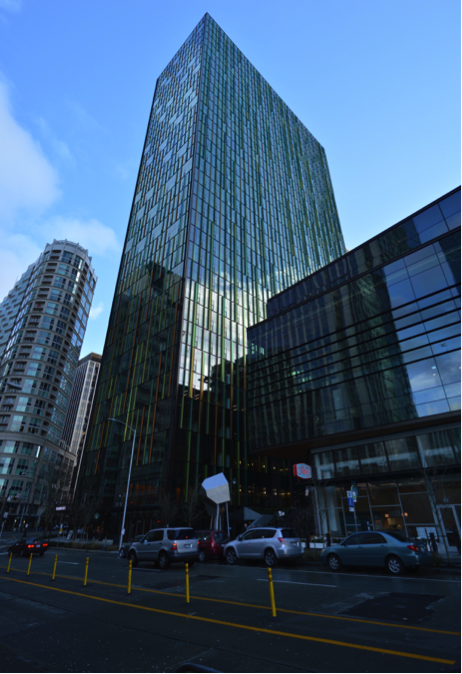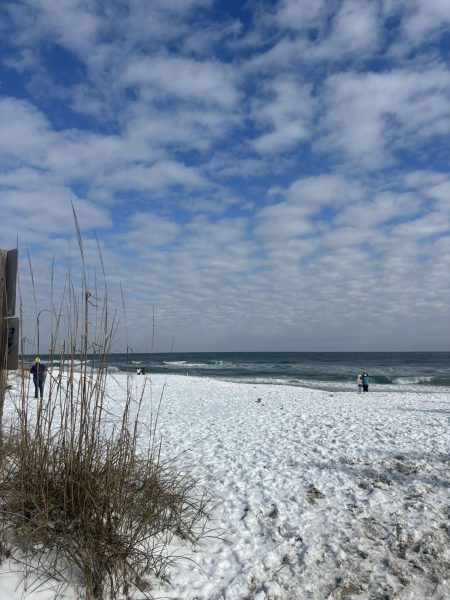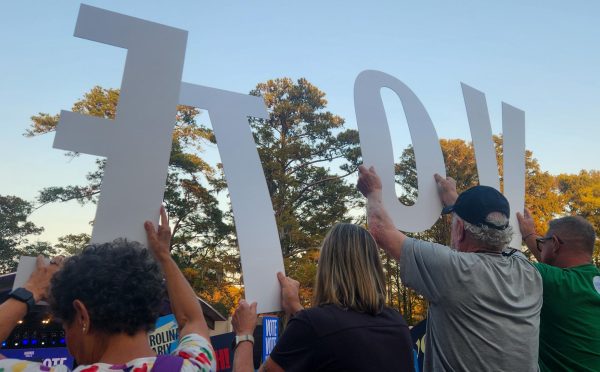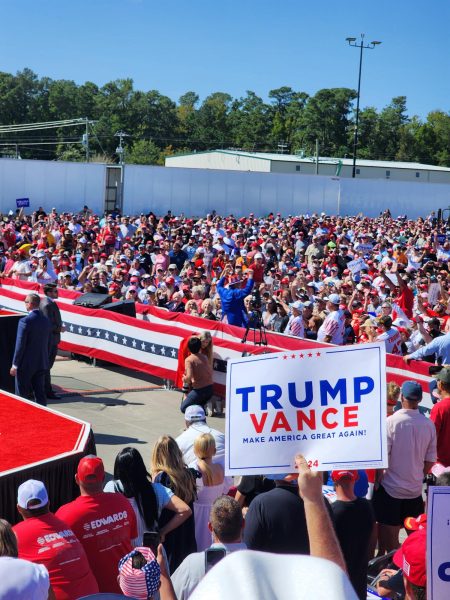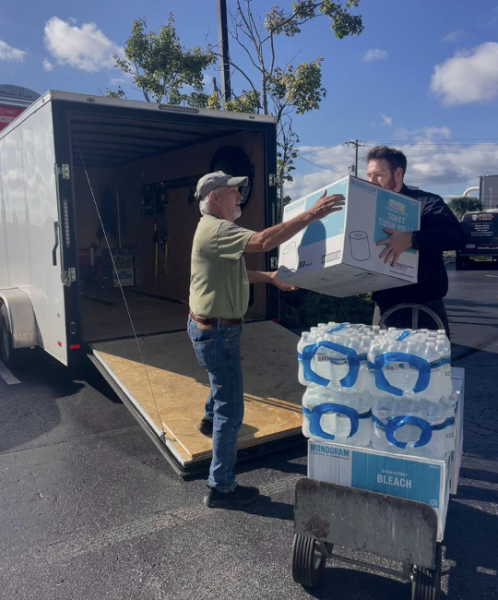North Carolina’s proposals for coveted Amazon HQ2
Amazon, the world’s 26th largest company by revenue, announced on Sept. 7 that they were seeking a city to host a second headquarters.
With a specific requirement list for each candidate city, metropolitan areas across the United States, Canada and Mexico began planning and executing bids to bring the tech giant to their area.
The city that lands the successful bid to host Amazon’s second headquarters, dubbed “HQ2,” will most likely be changed forever.
Amazon seeks to bring 50,000 full-time, high-paying jobs to whichever city hosts HQ2, and with 50,000 jobs comes a huge influx in residential construction and possibly even other tech firms relocating to the area to take advantage of the inspired new college grads flocking into town.
However, the requirements to land HQ2 are rather strict, and if followed entirely, they eliminate many major U.S. cities from the running.
The major requirements listed on Amazon’s RFP (Request for Proposal) include a metropolitan area of more than one million people, a growing job market, an ability to attract and retain strong talent, a good mass transit system and close proximity to major roads and an international airport.
What cities are eliminated at the start? Quite a few, with Wilmington most likely being one of them. Wilmington lacks the high-capacity and widespread mass transit system utilized by larger cities such as Washington and New York. The Port City also lacks a metropolitan area of more than one million people, it is currently estimated to be around 260,000 people.
That didn’t stop Wilmington’s Chamber of Commerce from reaching out to Amazon. Natalie English, head of the city’s chamber, tweeted to Amazon on Sept. 7, following the announcement of HQ2.
Local government leaders in Wilmington would have to green light submitting the proposal. It is unclear whether or not it was approved given the rather secretive nature of the proposal process, but Wilmington has not appeared on any lists of cities confirmed as of yet.
However, elsewhere in North Carolina could hold the city that hosts Amazon’s massive HQ2 project.
The project itself entails up to $5 billion in capital expenditures and requires 500,000+ square feet of office space to begin Phase I in 2019. By 2027, Amazon will require up to roughly 8,000,000 square feet of office space.
8,000,000 square feet is roughly equivalent to 140 football fields. So while the project is enormous, many cities feel up to the challenge.
Those cities include Charlotte and Raleigh.
In an email obtained by WRAL in Raleigh, three sites were possibly under consideration in the Triangle region for Amazon’s HQ2.
Those sites included the GlaxoSmithKline (GSK) Campus in Research Triangle Park, the Park Center along with the former Nortel Campus in Research Triangle Park and finally the Go Triangle Transit Stop at U.S. Highway 15/50 and Interstate 40.
In Charlotte, potential sites that could hold HQ2 are unknown, but some speculate that they number close to twenty. In a report from The Charlotte Observer, the sites chosen in Charlotte’s bid to Amazon represent and emphasize “the city’s appeal to millennials, ‘edgy’ vibe and appealing lifestyle.”
Other regions in the state that have submitted proposals include the Triad (Greensboro, Winston-Salem and High Point), and Hickory.
If HQ2 were to come to North Carolina, Wilmington would still be affected despite not physically receiving the project.
The Port City has long been known as a film town, with multiple television series and films being shot in the city and surrounding regions.
With Amazon’s growing number of original streaming content being offered to Amazon Prime subscribers, Wilmington could potentially be poised to receive an increase in filming, partially due to its convenient location to wherever HQ2 may be built in the Tar Heel State.
While nothing is set in stone yet, most metropolitan areas across the nation know the benefits that could come their way if HQ2 becomes a reality.
Seattle, for example, was transformed by Amazon’s presence. The growing company overshadowed even Microsoft – which was founded in Seattle – over the past few years due to its exponential growth around its downtown campus.
Amazon has brought up to 40,000+ employees to Seattle in addition to 53,000 jobs being created by Amazon’s direct investments into the city. The company’s investments into the city’s economy is estimated at $38 billion. This is all according to Amazon’s RFP for HQ2.
The Seattle Times did an in-depth report on Amazon’s revolutionary alteration of the booming northwest metropolis. According to the report, Seattle is now the biggest company town in America with Amazon occupying a huge 19 percent of all prime office space in the city.
Over the next five years, Amazon’s original 8.1 million square feet headquarters is expected to grow to 12 million square feet, outpacing nearly 43 other companies in the Seattle metro area.
If any of this were to happen to Charlotte or Raleigh, it would alter the business landscape in either city for good. Not only that, but the entire state of North Carolina would feel the results of the project, both directly and indirectly.
Amazon already has a presence in North Carolina, though, with a $35 million distribution center announced in August to be built in Kannapolis. This is in addition to a fulfillment center in Durham, distribution center in Concord and a wind farm in Pasquotank and Perquimans counties.
However, there are a few downsides to scoring with Amazon. Most notably the uptick in rent costs in whichever city is chosen.
A recent report from Apartment List – which was then published on CNN and The News & Observer – puts Raleigh as the number one city in the U.S. for the price of rent to spike. Why? According to the report, Raleigh wouldn’t be able to build enough apartments for the influx in workers.
MPF Research, the market intelligence division of RealPage, Inc., which specializes in property management solutions for the housing industry, says the opposite.
Greg Willett, the head of the research and analysis team at MPF, says that up to 16,000 units are planned to be available in the Triangle area within the next year. He says that is a stable number and that Amazon’s 50,000+ workforce won’t be coming all at once.
If it were to occur, Raleigh’s average rent costs are expected to increase up to 2 percent over the coming years from Amazon’s investments in the region.
Both the capital city and the entire state seem prepared to take on the rest of the nation, however, with Governor Roy Cooper and the N.C. Department of Commerce supporting the efforts wholeheartedly.
The competition for North Carolina is stiff though, with 238 proposals being submitted in total, including Charlotte and Raleigh. Other cities in the running include New York, San Francisco, Dallas, Miami and Chicago.
According to industry analysts, cities that are high on the predicted shortlists for finalists include Atlanta, Boston, Austin, Toronto and Washington, D.C. Raleigh is currently viewed as having a higher overall chance of scoring HQ2 than Charlotte.
Fingers remained crossed and hopes held high throughout the state, as the shortlist is expected to be released by Amazon within the coming month. Other southeast cities that have submitted proposals include Richmond and Virginia Beach, Va., Greenville, S.C. and Memphis, Tenn.
The final winner isn’t expected until 2018 however, with construction planned for 2019. Proposals for each city were due on Oct. 19.


